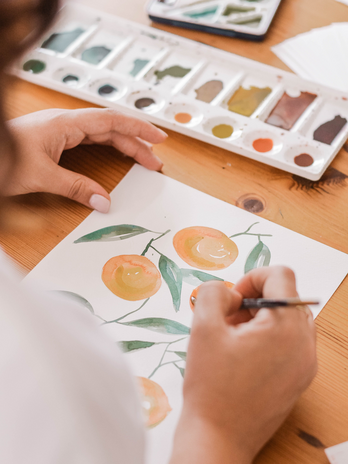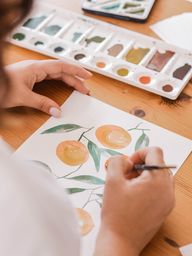“It’s that damn phone!” is an expression I sometimes hear from older generations. Usually, it provokes some eye rolling on my end, and I’m sure I’m not alone. We’re constantly caught up in the hectic nature of everyday life, and using technology as a shoulder to lean on can help us navigate these tricky waters. I mean, is it really such a crime to use smartphones to our advantage?
Lately, however, I’ve started to question if there could actually be some truth to the cliche. It was upon coming to the realization that too much smartphone usage can prevent us from exercising our creative hobbies and techniques. When we allow ourselves to feel bored without access to a smartphone, we typically decide to fix this feeling by tapping into a leisurely activity. But with convenient access to a device practically linked to your hand, it makes perfect sense to turn to it as the solution for boredom instead.
We tend to think that the inspiration for practicing our hobbies stem from other people, or from past and current experiences. While these factors certainly contribute, there is a missing piece to the equation. Picture the last activity you’ve done for leisure. What prompted you to start it?
When I asked myself this question, I concluded that the driving force of practicing my hobbies was boredom. At the same time, however, I realized that I didn’t particularly have hobbies anymore. I also rarely felt bored. Determined to make sense of these patterns, I set out to find an explanation. A recent trip to my childhood home gave it to me.
It was this visit that illuminated memories of a brilliant childhood, one that was characterized by all things creative. And while I can thank my parents for not placing my youth in the hands of an iPad, I can’t help but mourn this past as well. My passion for the arts had seemingly slipped through my fingers, along with my other former identities. I wasn’t just a student, like I now consider myself to be. I was an artist. I was a dancer. I was a bookworm. Above it all, I was imaginative. I couldn’t remember the last time I picked up a book to leisurely read, nor could I fathom stitching together a doll dress for fun. These days were now spent in front of a computer screen studying for my next exam, or mindlessly scrolling through online shopping sites. My ingenuity seemingly vanished one day, and it dawned on me that it had left around the time I received my first smartphone.
I consider myself a creature of habit, and my smartphone usage seems to follow a pattern. When I find myself scrolling through Instagram in an aimless fashion, it’s usually when I have nothing better to do.
If you’re anything like me, it takes about three seconds to pull out the phone and let its technological wonders fill the cracks of one’s day-to-day routine. This could include checking notifications upon waking up, scrolling on the commute to work, swiping during homework breaks, or tapping away amidst the precious hour of free time before dinner. It almost resembles a reflex at this point, and the way I see it, has become the norm. I’ve observed this behavior in my peers, parents, coworkers, and strangers alike. And though we may think of the ease of internet access as a perk, we take for granted the possibilities of innovation that arise alongside boredom. Being bored when I was younger meant picking up a book or starting a new art project. Now, the spark that led to my creative production is cut short by digital consumption. This new-age convenience of technology may be a short-term remedy for boredom, but it undeniably hinders creativity.
It isn’t the general public’s fault that the ways of modern society have led us to use the internet as an escape route. And don’t get it twisted — I think that technology can be a valuable tool when used with proper intention. But at what point does it cross a line? We most definitely have the capability to recognize the repercussions of excessive technology use, and that includes how we can make space for other possibilities.
One way I like to explore these possibilities is by practicing mindfulness, a term commonly used among the self-care community and others alike. It is the intentional practice of being aware of one’s psyche in the present moment, and may just be the key to allowing yourself to put down the phone.
So when I feel the desire to use my phone out of boredom, it’s a reminder to practice mindfulness. I can ask myself a simple question such as, “what alternatives could I be doing?” To me, this typically looks like choosing to play with my cats or trying a new beauty ritual. By presenting myself with reasonable options right when I get the urge to scroll through my phone, I can tailor activities to my present self rather than planning out a to-do list beforehand … and feeling guilty when I don’t get to it.
While technology has become an essential aspect of our lives, it’s important to recognize how frequent use can impact us, and how we can choose to waste time more wisely (so to speak). It’s not necessarily about always being productive, nor is there an expectation that you need to compose some sort of masterpiece each time boredom arises. Rather, it’s strategically freeing up space to experience life’s other pleasures when you are able to. You might be surprised at where boredom can take you by simply letting it be your muse. After all, inspiration typically doesn’t reveal itself while I’m preoccupied, but in the seemingly mundane moments of existence, when I can give my mind a chance to just wander.



